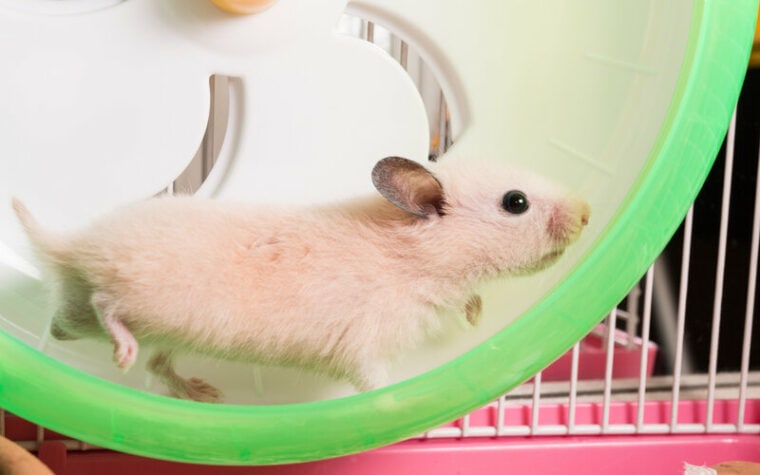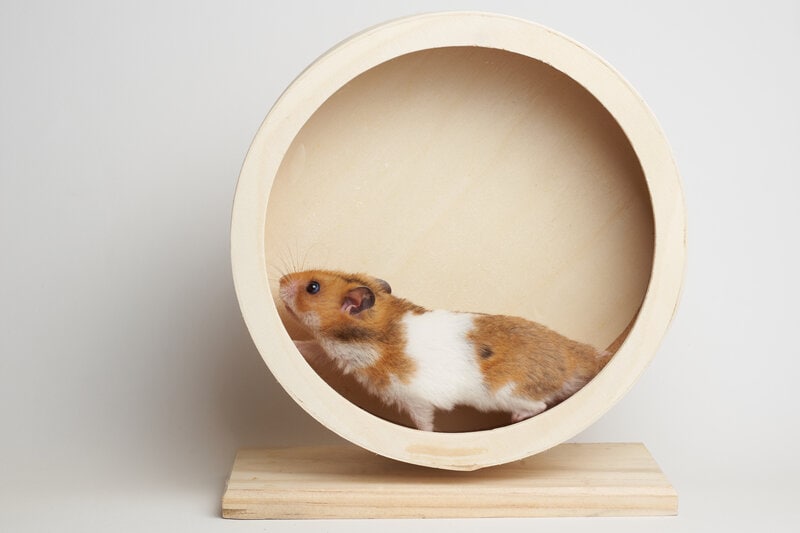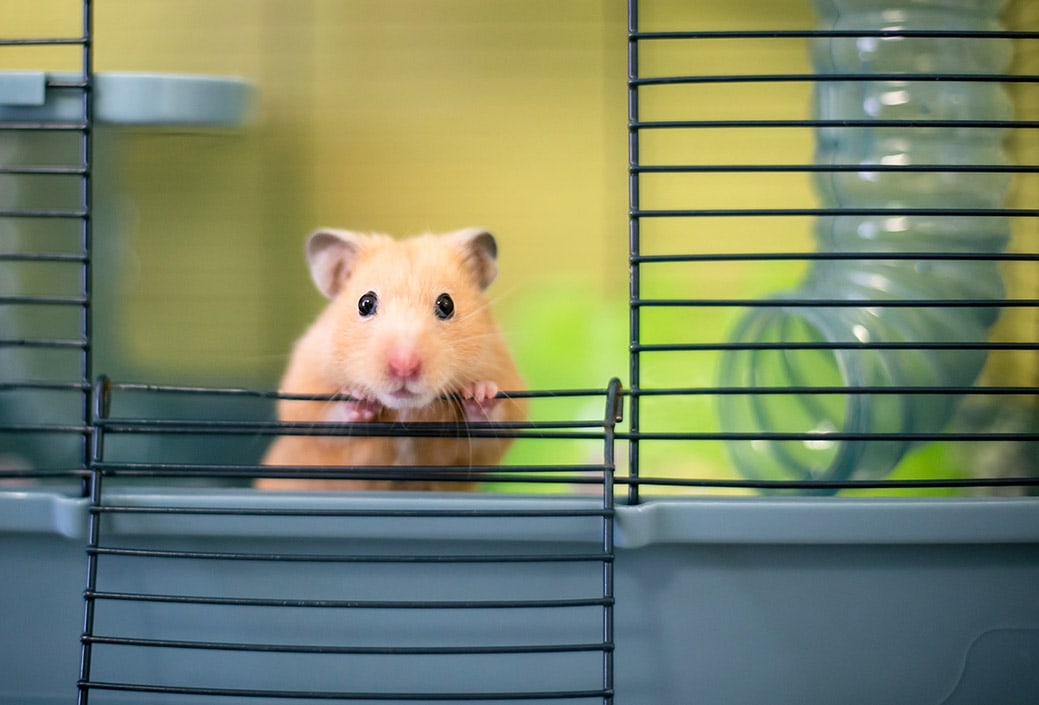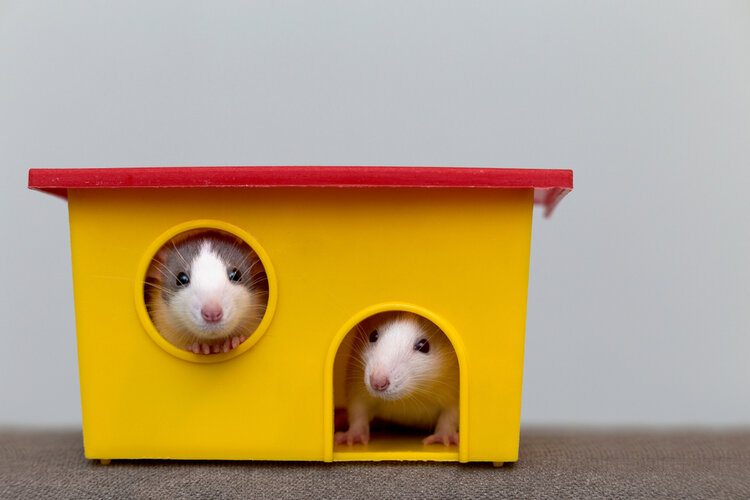
Most people know that hamsters are active pets that like to run around their cage and in hamster wheels, but how fast can a hamster run? Like other rodents, hamsters can run incredibly fast. With their small size and short legs, hamsters can run up to 8 miles an hour.
During their waking hours, hamsters may journey 5.6 miles in one night. Wild hamsters can go up to 5 miles a day. Their speed and ability can vary based on several factors, however, including age, health, weight, and breed.
How Fast Do Hamsters Run?
On average, a hamster can run at speeds of up to 8 miles an hour. By comparison, the average human can walk three miles an hour. The hamster uses a combination of its hind legs and tail to propel forward, and that tail helps the hamster maintain balance.
In addition to being fast, hamsters have a lot of stamina. The average American walks less than two miles a day, while the hamster can run up to five miles in one night. This is a skill they’ve evolved to avoid predators. They don’t have many natural defenses, so being quick helps them avoid being prey for birds and snakes.
Which Hamster Breeds Are the Fastest?
There are 24 hamster species, but just five are commonly kept as pets: Syrian Hamsters, Chinese Dwarf Hamsters, Campbell’s Dwarf Hamsters, Winter White Russian Dwarf Hamsters, and Roborovski Dwarf Hamsters. The smallest among them, the Roborovski Dwarf Hamster, is the fastest.

How Fast Are Hamsters Compared to Other Animals?
The hamster may be surprisingly fast for its size, but it’s hardly the fastest in the world. Other prey species, such as the hare and antelope, are much faster. The fastest birds can reach speeds that are much faster than the hamster as well, which is probably why these animals are so adept at hunting and catching rodents.
| Brown Hare | 48 mph |
| Frigate Bird | 95 mph |
| Peregrine Falcon | 200 mph |
| Rat | 8 mph |
| Hamster | 8 mph |
How to Give Your Hamster Enough Exercise
Wild hamsters are always active during their waking hours—usually at night—and need plenty of exercise to stay healthy. It’s important to have a big enough enclosure for your hamster to run, jump, spin, and bounce around, as well as the all-important hamster wheel.
Your hamster wheel should be appropriate for your breed’s size. For example, a Syrian Hamster needs a wheel that’s at least 7 inches in diameter, while a Dwarf Hamster can use a 5-inch wheel comfortably. That said, hamsters will choose a larger wheel if given the option.
Another good way to give your hamster exercise is with an exercise ball out of the cage. This allows your hamster to explore your home and surroundings. It offers more enrichment than running on a stationary wheel with the same surroundings. Hamster exercise balls also require a little more work, since your hamster will need to push the ball to get it moving.
It’s important not to leave your hamster unattended in the exercise ball, however. It’s easy for your hamster to become dehydrated or hungry. In addition, make sure that there are no hazards around, such as staircases, and don’t leave your hamster to run where dogs or cats can access them.

Conclusion
Like other rodents, hamsters are fast runners and have evolved to evade nocturnal predators like birds and snakes. While your pet hamster doesn’t have these risks to contend with, their energy level hasn’t changed much. It’s vital to provide your hamster with plenty of exercise and opportunities to run around to avoid boredom and keep them healthy and well adjusted.
- See also: Car Travel With Dogs – 10 Easy Tips
Featured Image Credit: Punyaphat Larpsomboon, Shutterstock








